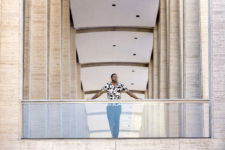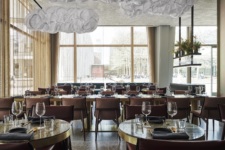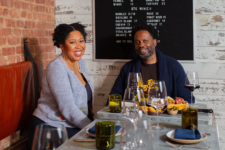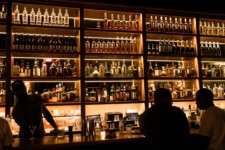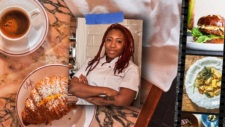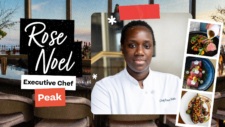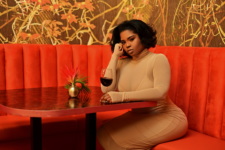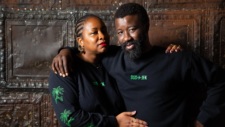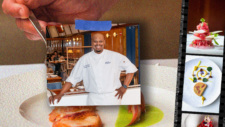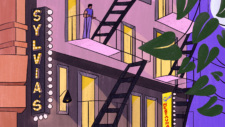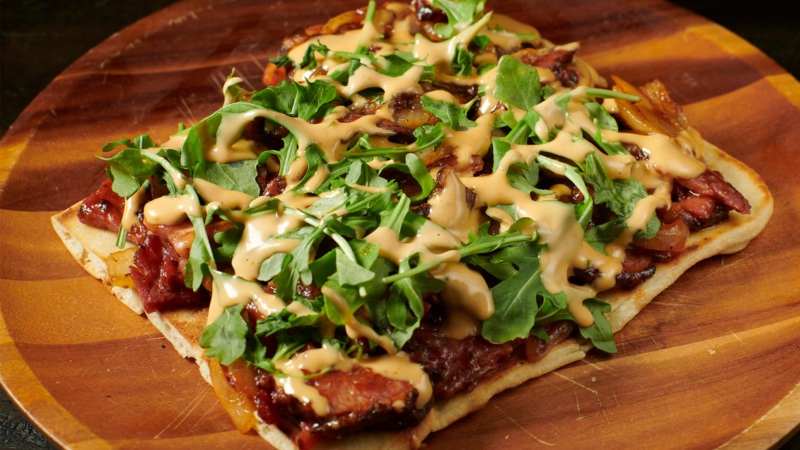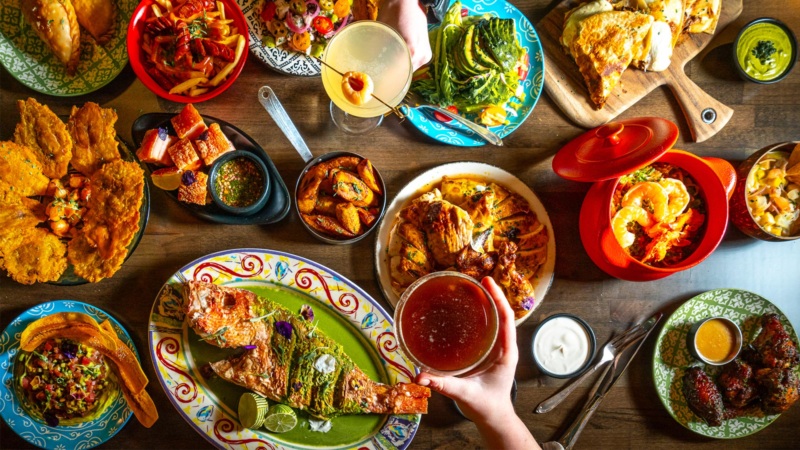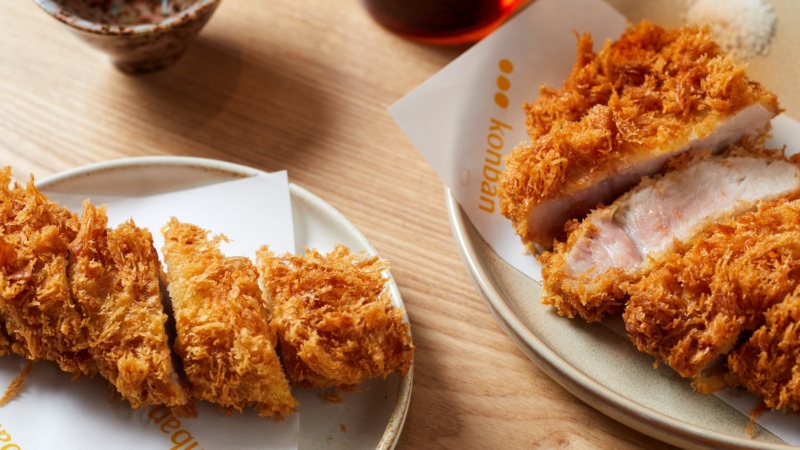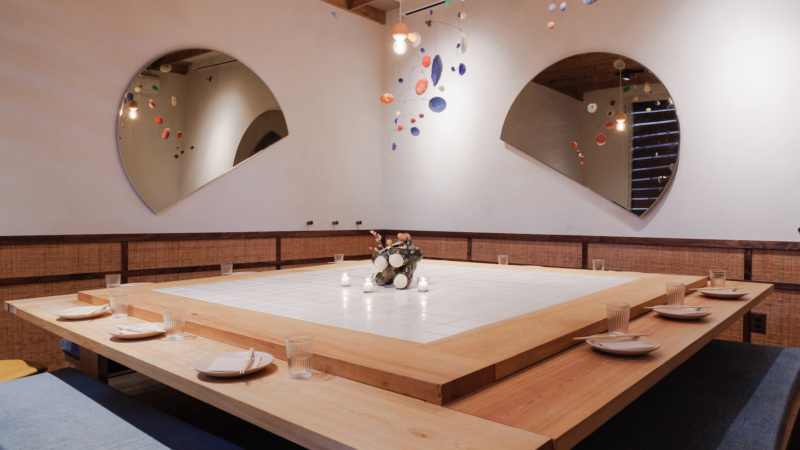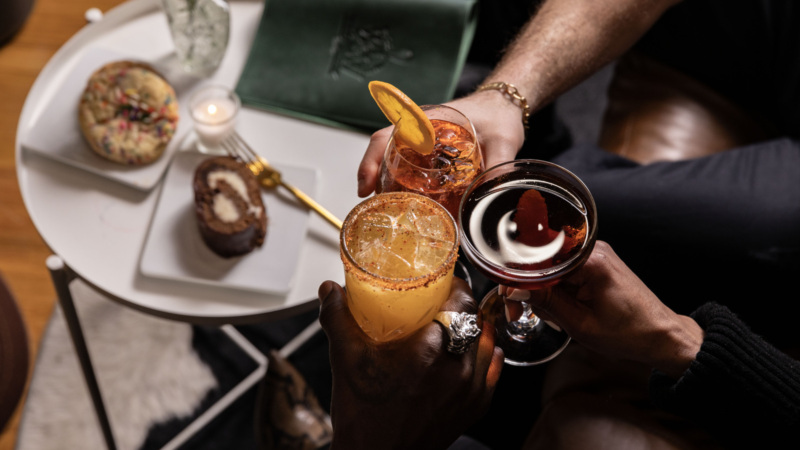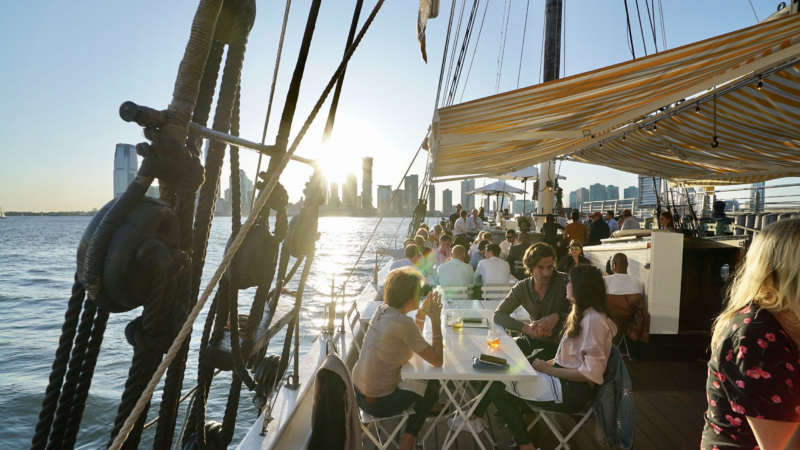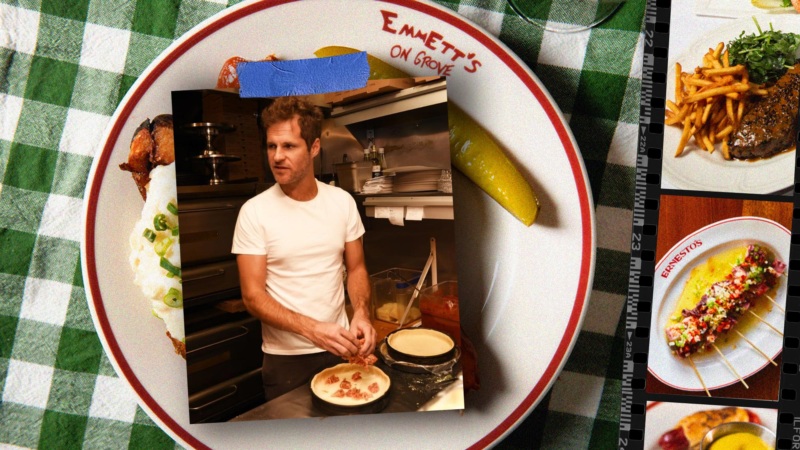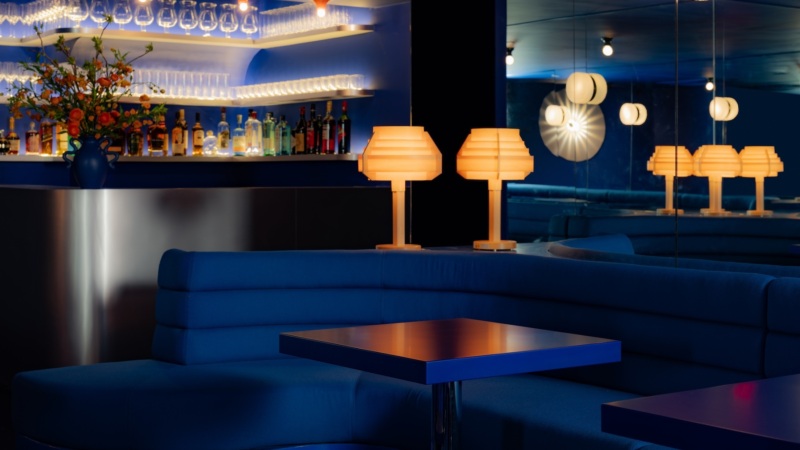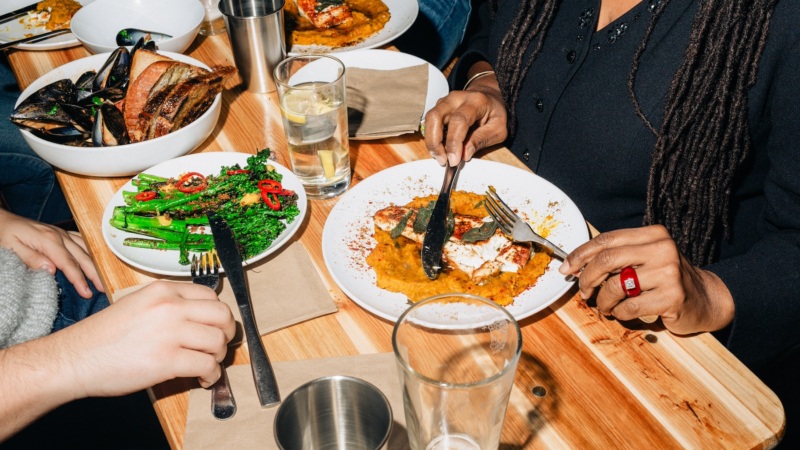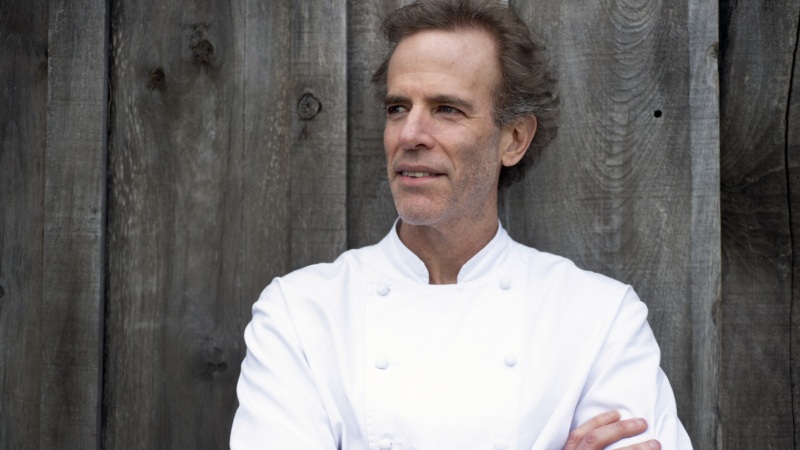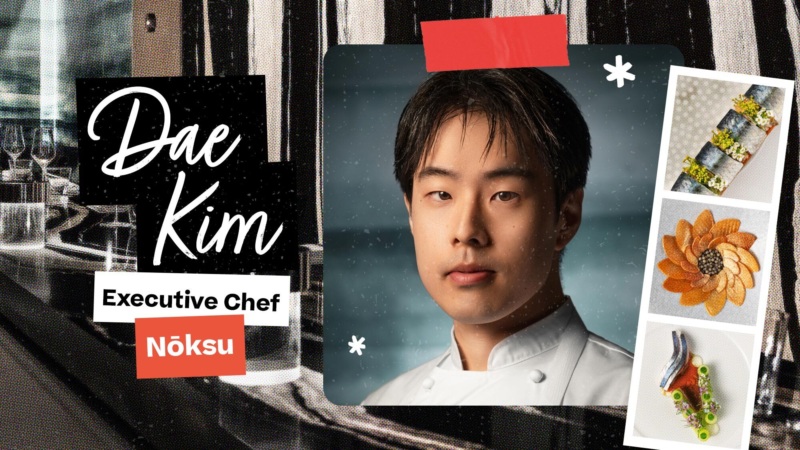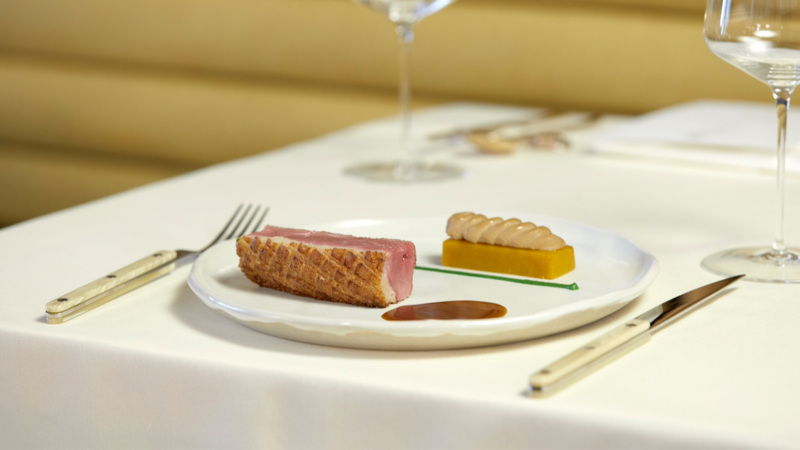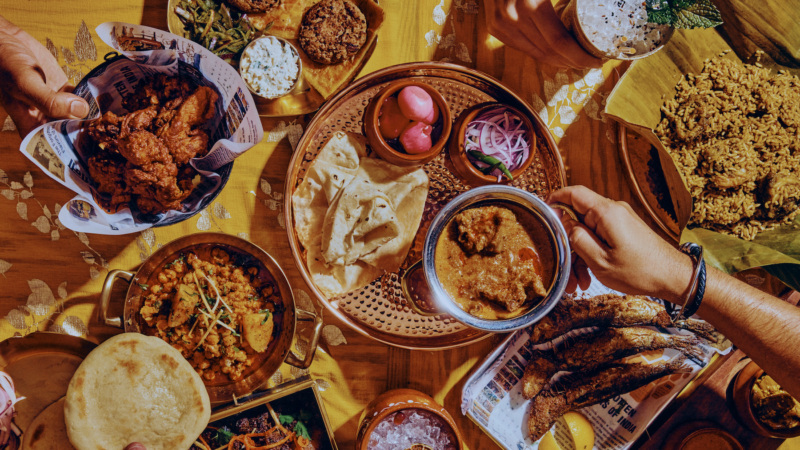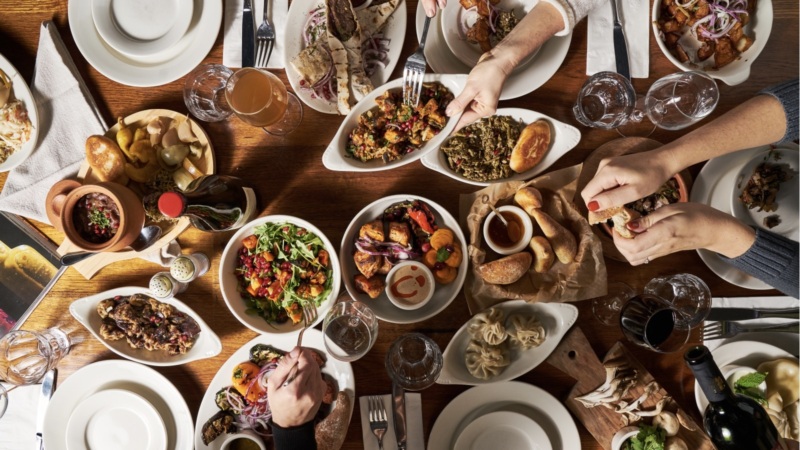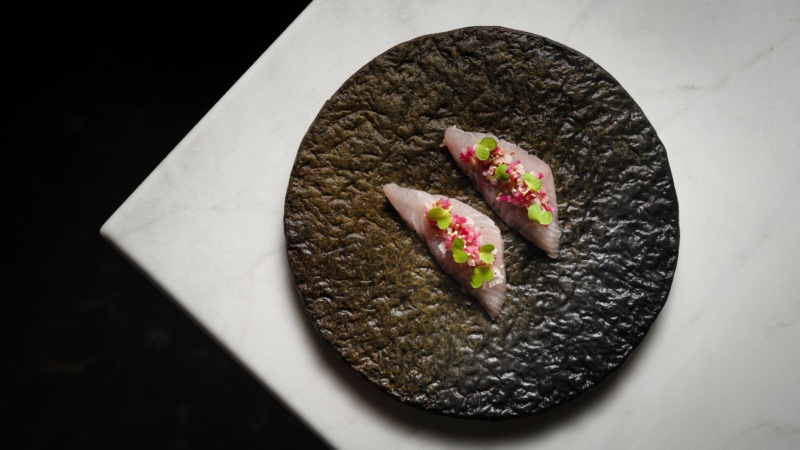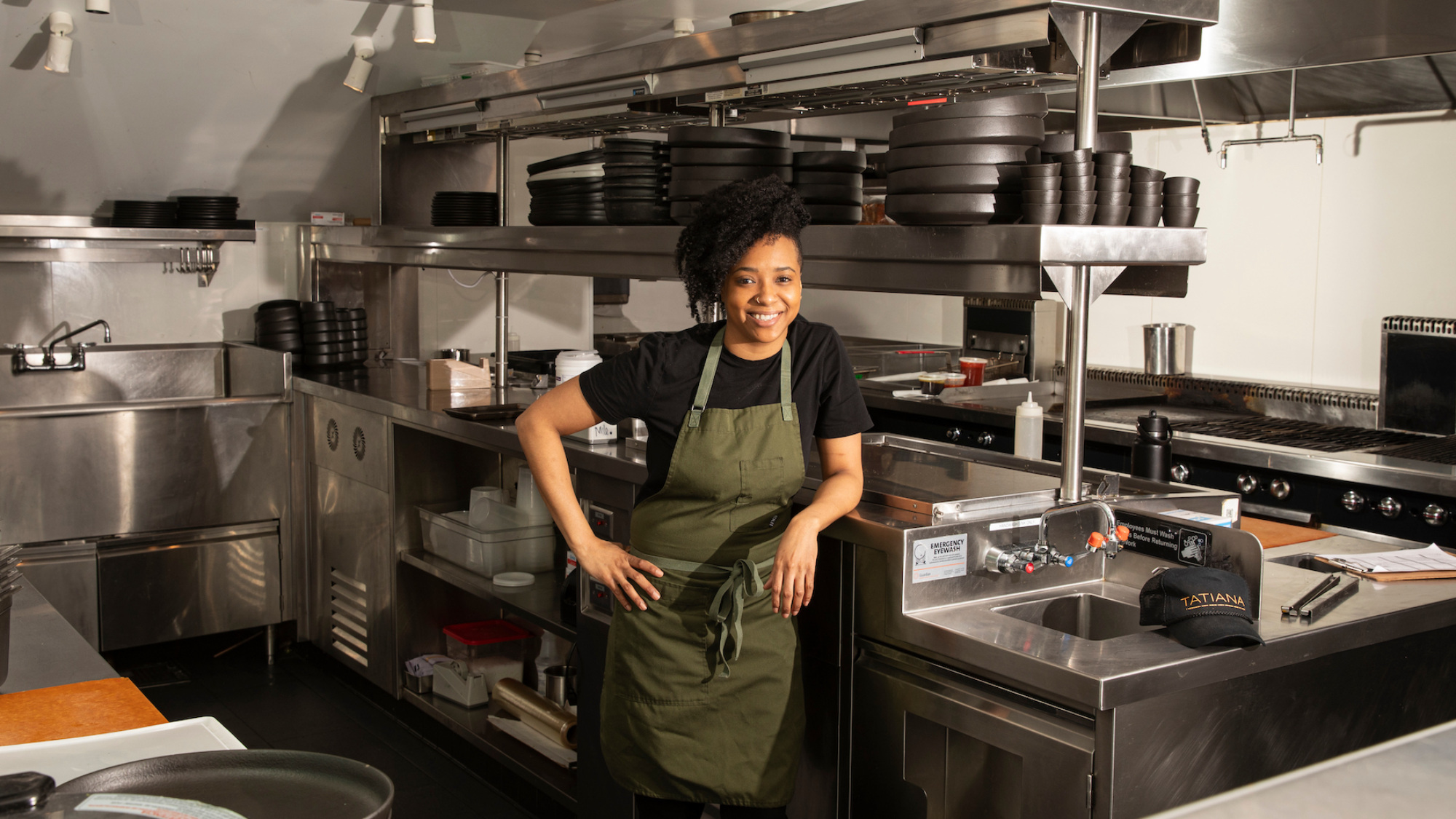
Resy Features New York National
Meet the Chef Helping to Build a Culture of Inclusion at New York’s Tatiana
Danisia “Chef D” Anderson, sous chef at New York’s critically acclaimed Tatiana, By Kwame Onuwachi, never expected to be a part of a movement. She just wanted to cook and learn as much as possible. She never anticipated how answering a simple online ad for kitchen help would catapult her onto a national stage.
Anderson’s identity as an Afro-Latina Queer woman from the South Bronx wasn’t always at the forefront of her mind, but as her career in New York’s dining scene has progressed, she’s seen firsthand how it can’t be ignored — and also just how much of an impact she can have for others. Today, she makes it a point to challenge the status quo, and systems that keep racism, sexism, and homophobia in place. Now, as a leader in Tatiana’s majority Black- and woman-led restaurant, she’s encouraging a culture for other up-and-coming chefs to feel motivated and inspired by.
Resy recently sat down with Anderson to talk about life as a chef, and as an Afro-Latina Queer woman in the restaurant industry.
Resy: Tatiana is a James Beard-nominated restaurant and more than that, it’s a culturally Black fine-dining space. This can be such a new feeling for us to experience. Do you think that changes how you operate?
Anderson: I get to be able to nurture our people. It’s not so much about being in a space teaching white people to understand Blackness, rather than teaching Blackness how to feel less monolithic. I’m here, I am a mentor, and I’ve created a space of safety because we as a community have our own language. You’re also an involuntary “translator” to white folks who don’t know our culture and, as an Afro-Latina, I’m happy to speak Spanish to our team members when needed, too. I help with paperwork, instruction, and problem solving.
I’ve realized that people are looking up to me and they can now see that working just as you are can lead to elevation. Every day, being the majority at Tatiana feels surreal. We also have to teach a new style of professionalism to prepare the staff for the next space where they may work. I have to be that person to teach them; there is a line.
The majority of your leadership team at Tatiana are Black women, some Queer. How does that feel?
I feel like our time isn’t happening enough across many industries. I was working on the line with my team and a famous Black Queer woman came back to the kitchen to greet us. I was having a conversation with her, and my team kept trying to interrupt. They didn’t know who she was; meanwhile, I’m having a moment, and they didn’t get it.
I have been very lucky. At other places there is a layer of toxic masculinity, and you can sense when people come from abusive spaces. I have never really worked in heavily abusive kitchens, and we show that the bar doesn’t have to be in hell. There is a lot of work that goes into a restaurant, but we are creating an entire system from scratch, and I want to be there.
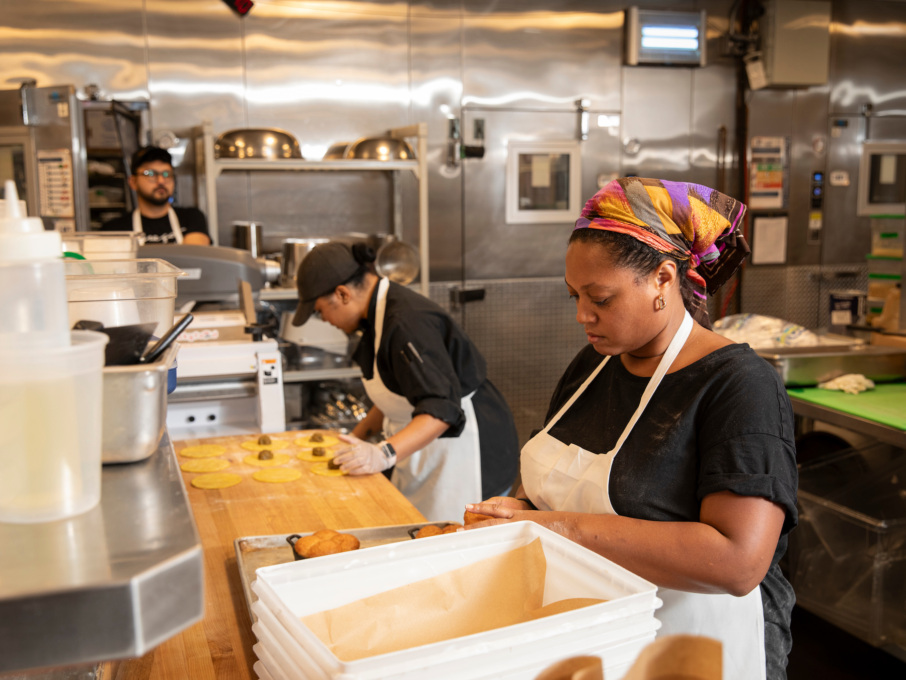
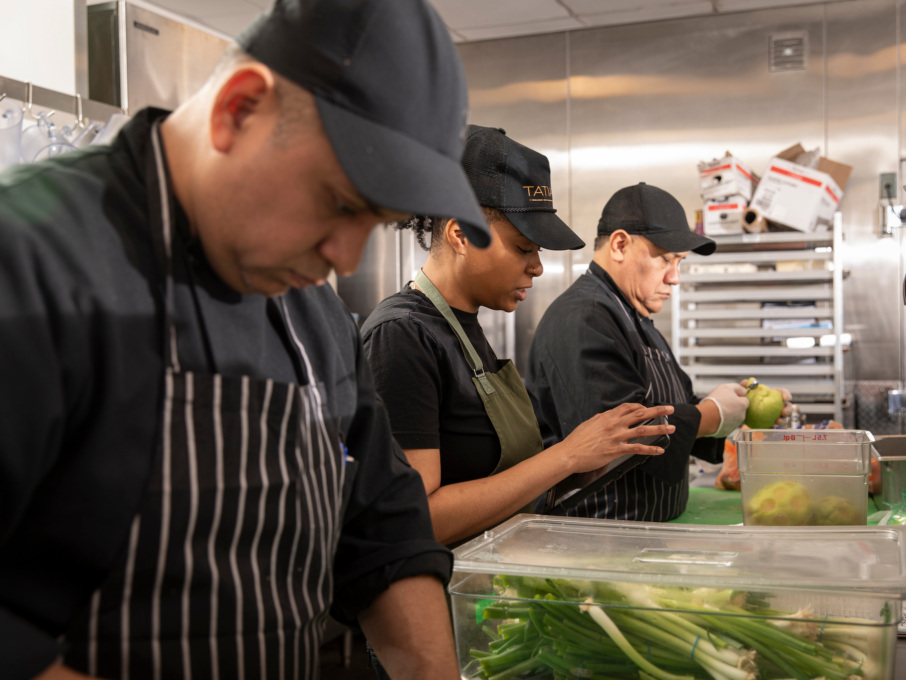
What does it feel like to be a part of this cultural shift that Queer Brown and Black folks are making in the restaurant industry? Do you feel like we would have seen something like this five years ago?
Sometimes when I am working, like cutting something, I stop and remember, “Man I am really doing something I love. I am a leader. I work at Tatiana.” Typically, outside of the kitchen because we have a small population of our specific community, it’s usually seen as a competition and now we get to have camaraderie. Meeting new people, it’s great to see how many of us there are. We haven’t found all of each other yet, but we are also working together. We are just rooting for each other at a distance. I want to reach out and let them know that we can be friends and I also know exactly how you are feeling right now. We need more support spaces for us to grow together.
How does a typical work day start for you before you even set foot into the kitchen?
I drink a full glass of water. I always have soup at home, like ramen, and I finesse it by adding broth and scallions. It’s nothing super fancy. Also, I do like to sing in the shower. The first thing I wanted to be was a singer and I gave that up really fast.
As Black women, we’re given a lot of rules about how our hair is supposed to look, especially in the kitchen. Have you dealt with this personally?
It took me a while to love my natural hair. I twist my hair now. I was once told at a previous job to “wrangle my hair.” With all the rules with health codes, it’s fine; it is something I have to tell people to do but hair is a part of my personality. There is a specific language on how to talk about it to Black people though. Being told something like that caught me off guard, like I don’t know how to keep my hair away. People would ask to touch my hair or tell me I look like Coolio, which, of course, are microaggressions. So now I tell my team you can show your personality another way, like with your socks or an apron. We also have a monthly Durag Day to celebrate Blackness even in the smallest way, to create pockets of safety just by having moments like that.
I’m not teaching other races to understand our culture; I am teaching my people how to grow. That is beautiful and freeing to watch.
I myself present as a more feminine Queer woman and have had my own set of challenges from men in spaces who don’t take me seriously. Have you had similar challenges being a more masculine presenting Queer woman?
Due to that I am more masculine presenting, it gives me a sort of “in” since, typically, kitchens are primarily men populated. But then I’ll be carrying plastic wrap and they might jeer and say something like, “be careful” or “do you need pink wrap?” On the other hand, the verbiage they’ve used around me sometimes would be too comfortable. They would talk in ways that they hoped I would agree with because of my identity, when I don’t. I get isolated with questions about how Queerness and gender roles “work,” but they do get to feel comfortable with me because I try to keep myself open and transparent.
A report by One Fair Wage found that multiracial women make, on average, $5.75 an hour less than their counterparts who are white men. Were there any pressures or challenges you faced coming into the restaurant industry as an Afro-Latina woman that you didn’t expect?
I definitely had imposter syndrome and not going to culinary school didn’t help. I felt like I had to put in my hours and work to earn my place. I wasn’t told specifically those were the rules, but it is definitely implied in the kitchen culture. I didn’t have accolades, so the respect wasn’t there.
There is also an assumption that, as a woman, you do not know how to handle it. As a Black Queer woman, I was able to find jobs where those parts of me didn’t matter so I could just work. I recognized that I don’t have to prove anything because the work speaks for itself. That made me decide to move differently.
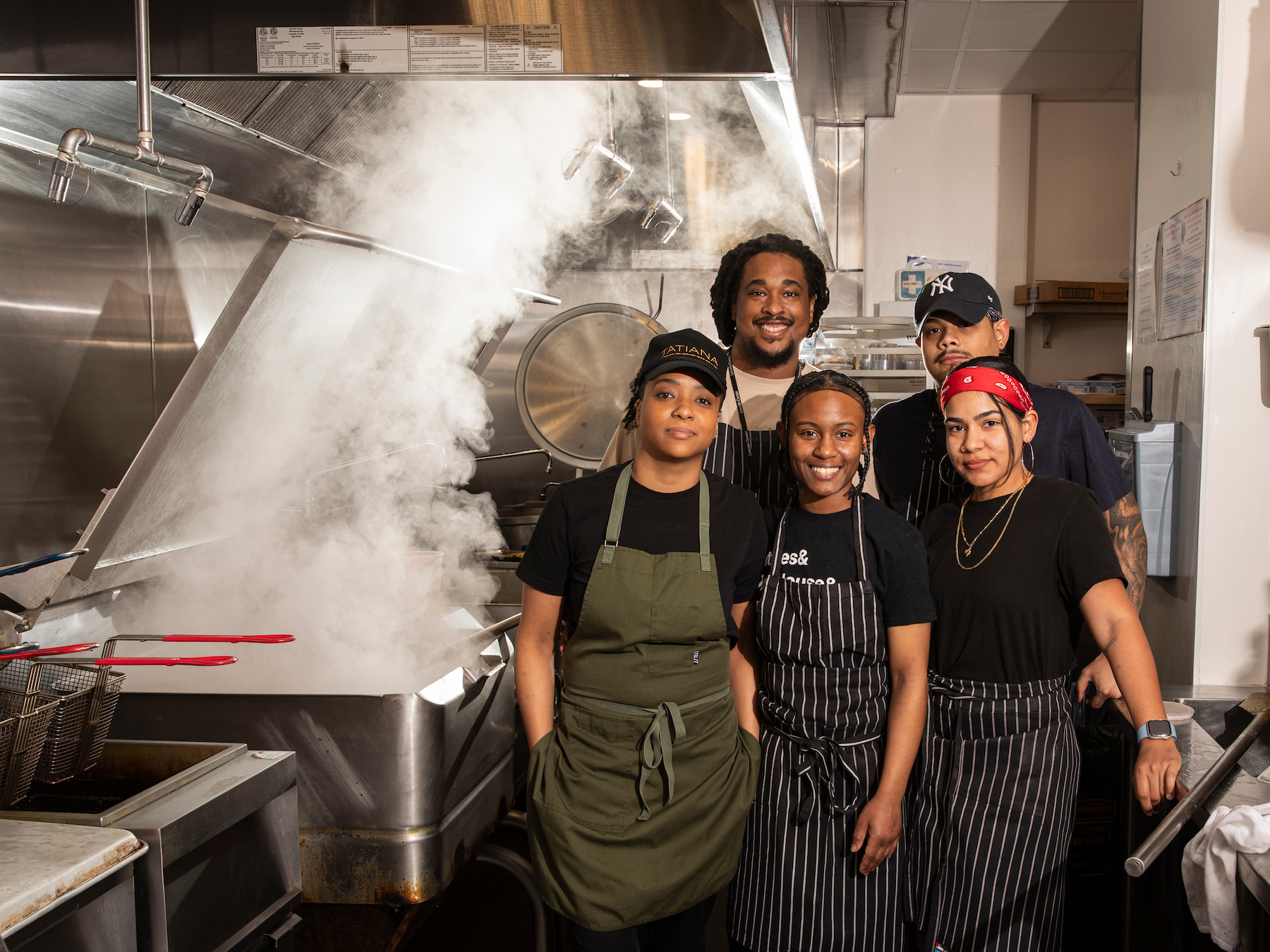
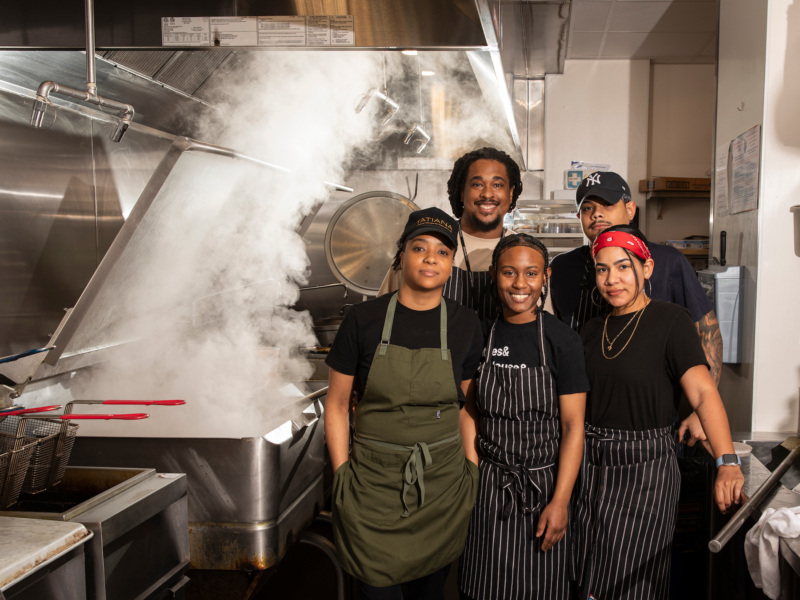
How do you try to erase the feeling of imposter syndrome for others, and for yourself? How do you find ways to change that culture of racial discrimination politics in your own kitchen?
It is a huge feeling of responsibility. I did have to find my path to be an impactful leader. I want people to not experience an abusive and toxic work culture with me. Both spaces where I have worked as a leader, at Tatiana and at Gage & Tollner, I have also been the person who creates the kitchen culture.
The fact that I am in predominantly Black spaces, other staff feel an opportunity to be more vulnerable and tell me what is going on so that I can help assist in their success. Luckily, I’ve never worked in spaces where I had to fear my leaders, so I don’t bring that over. I know it is not the only way to find success in restaurant kitchens.
As a chef who is more used to being behind the scenes, how are you handling the spotlight?
I learned that I will have to be pulled off the line to be a host as well as a leader. I am coming out of my comfort zone with cameras being around and having to step in. I don’t always have to be the face though; I want to share the opportunities with the team. I want everyone to feel like they are a part of the elevation happening and they deserve their stars.
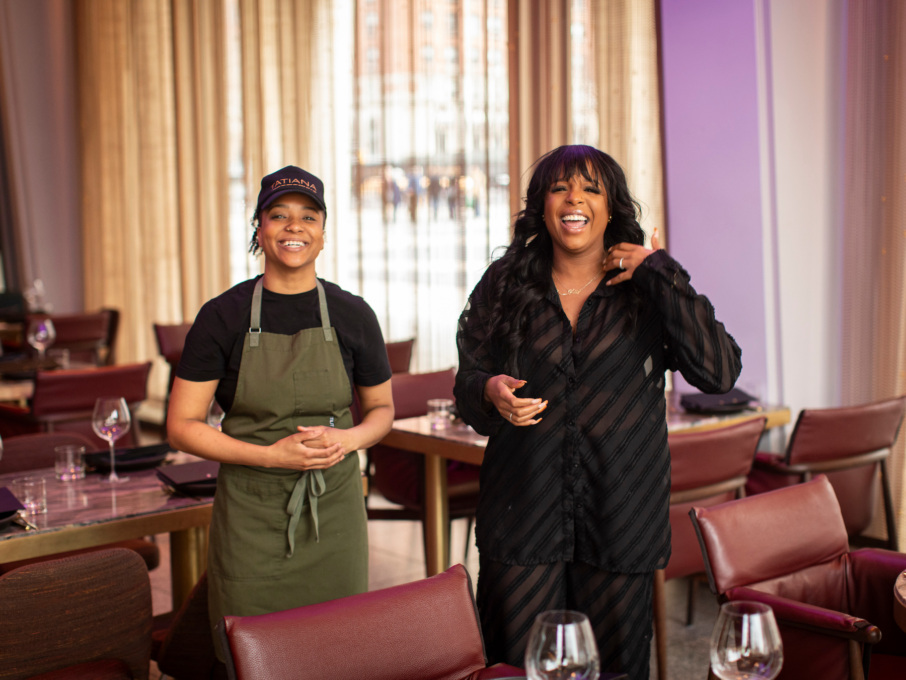
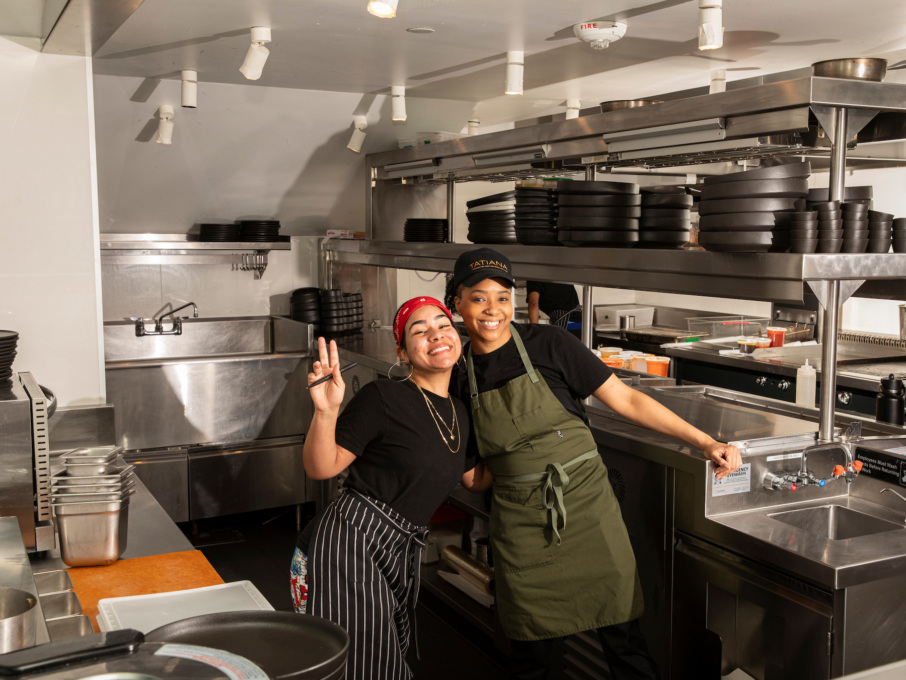
It sounds like you have moments where you become a teacher of Queer culture. Do you feel like this can become a variation of sweat labor?
Yes, exactly. People get curious and start to ask questions. When I was working in Brooklyn, there was a large Queer community, so I had a learning curve of my own that not everyone understands our vernacular. I use moments to explain pronouns, words, and phrases that they cannot say and interactions they should not be doing.
However, I’m happy to have the opportunity to teach and it doesn’t feel as exhausting. I’m not teaching other races to understand our culture; I am teaching my people how to grow. That is beautiful and freeing to watch. There are even small lessons that can be taught while you are working.
How do you want to encourage other Black or Brown Queer women who are looking at your career and aspire to it?
I want to open a place in the future, similar to a supper club with a small, intimate, tasting menu and to curate something accessible. I want to contribute to more culturally important spaces.
To the others out there, come find me. Go find others like me because we are here and are ready to help. I know I’m not the only one around, go ahead and slide in each other’s DMs. Keep curating and collaborating with the community, not driving competition.
Follow Danisia “Chef D” Anderson on Instagram.
Clay Williams is a Brooklyn-based photographer whose work takes him across the country and beyond, documenting stories of food, culture, and community. Follow him at @ultraclay.
This guide was written by Queer Food Foundation executive director and board member Vanessa Parish. The Queer Food Foundation is a collective of Queer individuals who work at all intersections of the food system — from food justice, culinary to community organizing, media, hospitality, and more. The foundation is passionate about holding space for the Queer community in food and aims to share their skills, knowledge, and experiences to create a thriving, represented, and intersectional food system. Follow the Queer Food Foundation on Instagram. Follow Resy, too.


